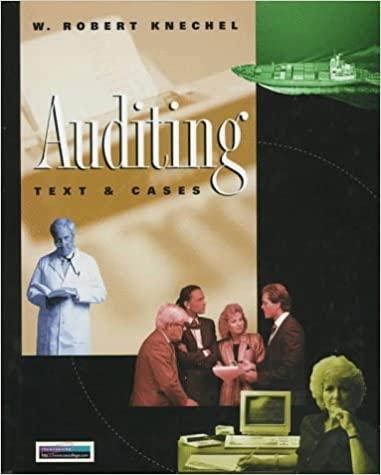Question
1. A segment of an organization is referred to as a cost center if it has: A. responsibility for developing markets for and selling of
1. A segment of an organization is referred to as a cost center if it has:
A. responsibility for developing markets for and selling of the output.
B. authority to make decisions affecting the major determinants of profit.
C. authority to make decisions about the amount of investment capital.
D. authority to make decisions over the operations including choice of suppliers.
E. None of these.
2. For the month of April, budgeted sales were $100,000 and budgeted cost of goods sold was $80,000. Actual sales were $80,000 and actual cost of goods sold amounted to $90,000. In preparing its monthly performance report: A. an unfavorable cost variance of $20,000. B. a favorable cost variance of $20,000. C. a favorable cost variance of $10,000. D. an unfavorable cost variance of $10,000. E. None of these.
3. For the month of April, budgeted sales were $100,000 and budgeted cost of goods sold was $80,000. Actual sales were $80,000 and actual cost of goods sold amounted to $90,000. In preparing its monthly performance report: A. an unfavorable gross profit variance of $20,000. B. a favorable gross profit variance of $20,000. C. a favorable gross profit variance of $10,000. D. an unfavorable gross profit variance of $10,000. E. None of these.
4. Which of the following decisions would necessarily result in an increase in profit or decrease in loss?
A. Eliminating the sale of all products that are priced below variable cost.
B. Eliminating the sale of all products that are priced below absorption cost.
C. Eliminating the sale of all products if the firm has a loss.
D. Not eliminating the sale of any products if the firm is profitable overall.
E. None of these.
5. How is a labor rate variance computed?
A. The difference between standard and actual rate multiplied by actual hours.
B. The difference between standard and actual rate multiplied by standard hours.
C. The difference between standard and actual hours multiplied by actual rate.
D. The difference between standard and actual hours multiplied by standard rate.
E. None of these.
6. In calculating the controllable contribution margin, fixed costs should be subtracted from the contribution margin:
A. in every case.
B. if they are controllable by the segment's management.
C. if they are directly traceable to the segment.
D. Both B and C.
E. None of these.
7. What type of direct material variances for usage and price will arise if the actual number of pounds of materials used exceeds standard pounds allowed but actual cost was less than standard cost?
This is also Multiple choice question but I don't have any options available right now for this question.
8. When using a direct costing system, the contribution margin discloses the excess of:
This is also Multiple choice question but I don't have any options available right now for this question.
Step by Step Solution
There are 3 Steps involved in it
Step: 1

Get Instant Access to Expert-Tailored Solutions
See step-by-step solutions with expert insights and AI powered tools for academic success
Step: 2

Step: 3

Ace Your Homework with AI
Get the answers you need in no time with our AI-driven, step-by-step assistance
Get Started


